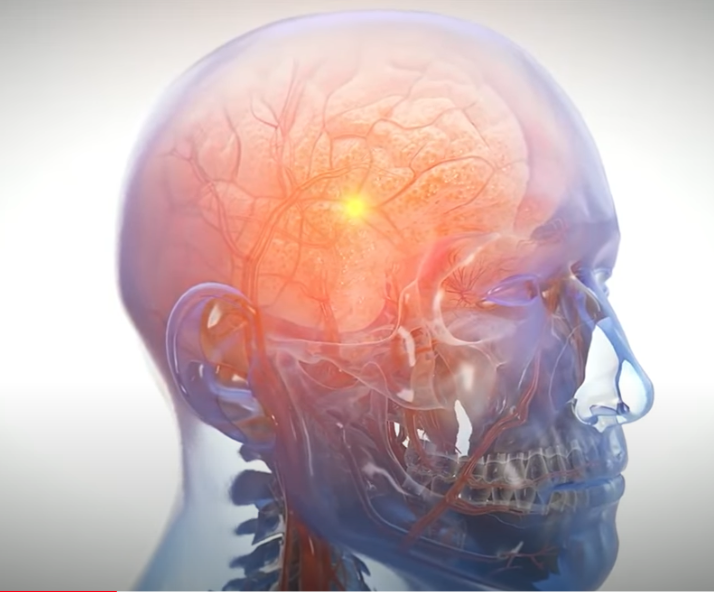8 Steps You Should Follow
While most of us get behind the wheel without considering the prospect of a serious automobile accident, statistically, your chances of being involved in a car accident in your lifetime are relatively high. Do you know what to do if you’re involved in a car accident with injuries? How do you react? How do you deal with the other driver, emergency personnel, or considering a personal injury claim?
Read on for more information, and for answers to your legal questions, contact an experienced California car accident attorney.
1. Remove Your Vehicle from Traffic (if Possible)
After a car accident, particularly one occurring in heavy traffic congestion, it is important for both the flow of traffic, as well as your safety and the safety of others, to move your car to the side of the road, if possible. The reason for this is to avoid the wreckage being hit by other vehicles as well as to allow traffic to move around the accident. Turn on your hazard lights to warn approaching drivers of the accident. If you have traffic cones, triangles, or flares available, place those out, particularly at night when visibility is low, or if the accident occurred around a sharp corner where approaching traffic may not be able to see it from a distance.
2. You Should Stay at the Scene
Depending of the type of car accident the scene of the accident can be a chaotic and dangerous place to be. Plus, getting into an accident means being late to, or altogether missing, the appointment or errand you were on your way to before the accident happened. All of that being said, there are many reasons why you need to stay on the scene of an injury accident, such as:
- It’s the law. Even if you were not at fault or there was no damage or injury, the driver of any vehicle involved in an accident must immediately stop the vehicle at the scene of the accident (or as close thereto as possible) and must remain at the scene of the accident to render information or aid. Failing to do so could result in being charged with a criminal offense. This is what constitutes a “hit and run” offense.
- The information you must provide to the other driver and any injured person in the accident includes your name, address, and the registration number of the vehicle you were driving. Upon request, you should also show your driver’s license to the other driver or injured person, as well as your insurance information. However, do not allow anyone to take a photo of your driver’s license or provide your phone number or home address to anyone other than a police officer, as it raises the potential of identity theft.
- You should collect the above-listed information from the other driver(s) involved, as well. If the other driver is incapable of giving this information to you, and there is another adult passenger in the vehicle who is physically able to provide information, get as much information as that individual as you can, including the name of the individual who provided the information.
- The law also requires that you render “reasonable assistance” to injured parties. While this does not mean you are mandated to perform life saving procedures, particularly if you are not trained to do so, reasonable assistance does mean that you should ensure that somebody calls an ambulance and remain with the injured party until first responders are on the scene.
3. You Should Take Photos of the Scene (if Possible)
Photos are important as evidence of what took place, where, and how. If it is possible and doesn’t place you at risk of being injured or causing an additional traffic accident, some of the photos you should take include all four sides of each vehicle, showing any damage that occurred. Photos should also give a glimpse as to the weather and traffic conditions at the time of your accident, as well as the location in which the accident occurred. Any visible injuries to yourself or your passengers should also be taken, as well as any accident debris and skid marks on the roadway.
If it is not possible to take photos at the scene, you should write down information about the scene, including describing the damage to both cars, the weather, the location, time of day, and traffic conditions when the accident occurred.
4. You Should Avoid Making Statements to Anyone but the Police
After an accident, emotions run high and it is not unusual for parties involved in the accident to discuss—or even argue about—how the accident occurred or who was at fault. It is important not to do this, however, as it could be construed as a statement of fault by you to the other driver and witnesses, and could be turned against you when it comes time to pursue compensation for your injuries.
When police arrive on the scene and begin asking questions, it is important that you answer those questions honestly and to the best of your ability. Do provide your contact information to the police when asked. However, avoid discussing fault in the accident while talking to other accident victims or witnesses, and do not apologize for the accident (even if you are just being polite!).
Similarly, you should avoid talking about the accident in social media posts, as this too can be construed as a statement, and social media content can be later used against you.
5. You Should Ensure That You Are Not Injured
It is important when involved in a serious accident to have a medical examination, even if you don’t “feel” hurt. Whether caused by an adrenaline rush after the accident, shock, or other reasons, many injuries that one can receive in an accident don’t present symptoms until hours or even days after they occur. The list of injuries that may present with delayed symptoms include brain injuries, soft-tissue neck injuries, and internal bleeding or damage to the internal organs. A thorough medical examination is your best chance of catching and treating these injuries before they become worse.
6. You Should Ensure That a Police Report Is Filed
While you, the other driver, or a witness likely called 911 at the time of the accident, you will still need to ensure that the police who respond are filing the report. The police report following an accident is an extremely important piece of evidence, and will likely play a vital role should you find yourself on either end of a personal injury lawsuit or insurance claim.
Police reports provide a crucial piece of evidence if there becomes a disagreement over who is at fault for the accident. Additionally, they are used to document the scene, including the time of day, the amount of traffic, and any other factors that may have contributed to the crash.
7. You Should Notify Your Insurance Company
Not sure as to who was at fault? Worried that reporting the accident will increase your rates? You still should notify your insurance company any time you’ve been in an accident. Why? Because the contract you signed when you obtained your policy likely states that you are required to report all accidents, generally within 24 hours. If you fail to do this, you may nullify the contract and find yourself on the hook for damages to property and injuries to people if your own actions were to blame.
One thing to remember when speaking to your insurance company, however: Even though you have a policy with them, they are not necessarily in the business to represent your interests in the accident. They’re in business to make money. Part of the way that insurance companies make money is by finding ways to avoid paying claims, and they have their own attorneys to help them do this. If there were injuries to other parties, if you were injured, and/ or if you may have been at fault in any way, then you are likely best served by speaking to an attorney who can represent you, not your insurance company.
8. You Should Speak to an Experienced Car Accident Attorney
A personal injury lawyer who is experienced in car accident cases is likely your best option if you or your passengers have suffered injuries. A car accident attorney can help you in the following ways:
- Helping you understand the legal process. As chaotic as car accident scenes are, the process of pursuing legal claims afterward can be every bit as complex. An experienced car accident attorney can explain the process to you, answer any questions you might have about the process, and advise you on the pros and cons of the options that are available in your case.
- Determining all sources of liability. Often, car accidents aren’t the result of just one action on the part of one driver. In many cases, many actions and other factors contributed to the accident. California law recognizes that liability may be shared, and allows for personal injury claims to be made even if the claimant was partially to blame for the accident. Additionally, your attorney will look for other contributors such as defective vehicle parts or poor road construction, which might reveal additional liability on the part of other parties such as government agencies or manufacturers.
- Establishing a value to your case. The value for your case is the amount of compensation you will seek to cover your out-of-pocket expenses—past, present, and future—as well as the impact that the accident has had, and will have, on your life.

- Negotiating with insurance companies. A large part of an attorney’s job is negotiating fair settlements for their clients with insurance companies. Whether you’re submitting a claim to your own insurance company or pursuing compensation from the other driver’s insurance company, your personal injury attorney can advise you as to whether the settlement offered fairly covers your damages.
- Gathering the evidence needed to support your claim. Personal injury claims hinge on the ability to prove that another person’s wrongful actions caused the accident that resulted in your injuries, and that the compensation you seek is fair based on the expenses and impacts you’ve faced. An insurance company, or the court in cases that result in a personal injury lawsuit, will require that the claims be backed up with evidence. Evidence may include the police report, photos of the accident, photos of the damage to your car, medical bills, statements regarding your prognosis from your doctor or from medical experts who have experience in the type of injury you suffered, and more. Your attorney will know, ask for, and gather the information from you and others necessary to support your claim.
- Representing you in court. While the majority of personal injury cases settle before reaching the inside of a courtroom, you want an attorney who is comfortable and confident at trial, mindful of statutory filing requirements, and who will represent you at all pre-trial hearings, the trial itself, and through any appeals that may result from the court’s judgment.
- Handling the collection of your award. Personal injury attorneys generally do not get paid for their services until a successful settlement or award is reached. When it comes time for you to receive the compensation, your attorney will handle the collection and disbursement of the funds, taking his or her cut and providing you with an itemized list of the services that have been provided for you.
If you or your passenger were injured in an accident, you may be entitled to compensation from the at-fault driver, or another party. If you talk about your case with a car accident lawyer, you can understand how to best respond after a car accident.







